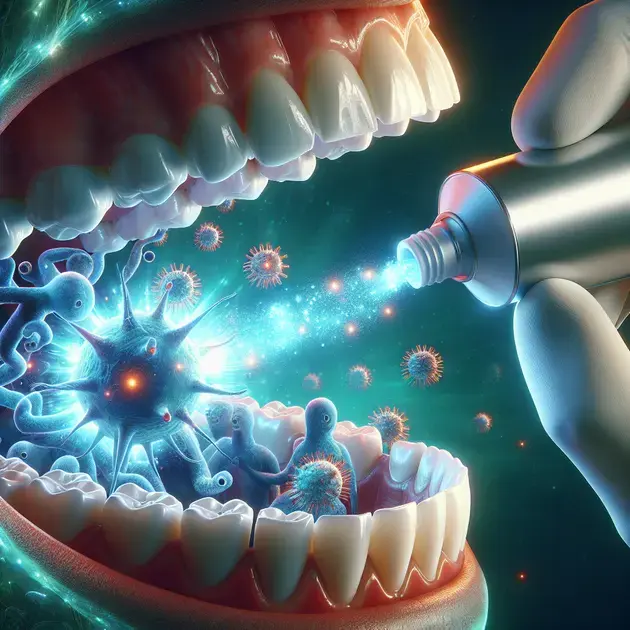When it comes to addressing periodontitis, finding the right medication is crucial for effective treatment. This comprehensive guide aims to provide you with valuable insights into the most effective medications available for combating this common oral health condition.
With advancements in periodontal research and treatment options, individuals suffering from periodontitis can now access a wide range of innovative medications designed to target and eliminate harmful bacteria in the gums. In this guide, we will explore the latest developments in medication for periodontitis and how they can significantly improve your oral health.

Effective Medication Options for Periodontitis Treatment
When it comes to treating periodontitis, there are several effective medication options available that can help combat the harmful bacteria causing the infection. These medications can be used in conjunction with professional dental treatments to improve oral health and reduce inflammation and infection in the gums.
One common medication used for periodontitis treatment is chlorhexidine mouthwash. This antimicrobial mouthwash helps to reduce the levels of harmful bacteria in the mouth, promoting better oral health. To obtain chlorhexidine mouthwash, you can consult with your dentist or purchase it over the counter at most pharmacies.
Another effective medication for periodontitis is doxycycline, which is an antibiotic that can be prescribed by your dentist or healthcare provider. Doxycycline works by targeting the bacteria responsible for gum infections, helping to reduce inflammation and promote healing. To obtain a prescription for doxycycline, schedule an appointment with your dentist for a consultation.
In some cases, your dentist may recommend a localized antibiotic treatment such as Arestin. Arestin is a minocycline antibiotic powder that is applied directly to the pockets in the gums where bacteria thrive. This targeted treatment can help to eliminate harmful bacteria and promote gum healing. Your dentist can provide information on how to undergo this treatment during your regular dental visits.
Overall, by incorporating these effective medication options into your periodontitis treatment plan, you can improve the health of your gums and reduce the risk of further complications associated with gum disease.
Understanding How Medications Target Harmful Bacteria
Medications used for treating periodontitis target harmful bacteria in the mouth in various ways to promote oral health and prevent infection. Understanding how these medications work can help patients better manage their gum disease and improve their overall oral hygiene.
Antibiotics such as amoxicillin and metronidazole are commonly prescribed to target specific strains of bacteria that cause periodontitis. These antibiotics work by inhibiting the growth and reproduction of harmful bacteria, reducing inflammation and promoting gum healing. To learn more about how these antibiotics target bacteria, consult with your dentist or healthcare provider during your next appointment.
In addition to traditional antibiotics, antimicrobial mouthwashes like Listerine can also help target harmful bacteria in the mouth. These mouthwashes contain ingredients that can kill bacteria on contact, promoting fresher breath and better oral health. To incorporate an antimicrobial mouthwash into your daily oral hygiene routine, simply purchase it at your local pharmacy or grocery store.
For more targeted treatment, some medications like PerioChip are placed directly into the pockets of the gums where bacteria accumulate. PerioChip contains chlorhexidine gluconate, which helps to kill bacteria and reduce inflammation in the gums. Your dentist can provide information on how to receive this specialized treatment during your regular dental visits.
By understanding how medications target harmful bacteria in the mouth, patients can take proactive steps to improve their oral health and effectively manage their periodontitis symptoms.
Improving Oral Health with Innovative Periodontitis Medications
Advancements in periodontitis medications have led to the development of innovative treatments that can help improve oral health and combat gum disease more effectively. These medications target harmful bacteria in the mouth while promoting gum healing and reducing inflammation, providing patients with a comprehensive approach to managing their periodontitis.
One innovative medication for periodontitis is PerioGuard, a prescription mouth rinse that contains chlorhexidine gluconate. PerioGuard helps to reduce bacteria levels in the mouth, promoting healthier gums and fresher breath. To obtain PerioGuard, consult with your dentist for a prescription and use it as directed for best results.
Another groundbreaking treatment is the use of probiotics to restore balance to the oral microbiome. Probiotics such as EvoraPro contain beneficial bacteria that can help combat harmful bacteria in the mouth, promoting better oral health and reducing the risk of gum disease. To incorporate probiotics into your oral health routine, consult with your dentist for recommendations on products such as EvoraPro.
Furthermore, the use of localized antibiotic treatments like Atridox can provide targeted relief for periodontitis symptoms. Atridox is a gel that is applied directly to the gums to kill bacteria and reduce inflammation, promoting gum healing and overall oral health. Your dentist can provide information on how to undergo this specialized treatment during your regular dental visits.
By utilizing innovative periodontitis medications in conjunction with professional dental care, patients can take proactive steps towards improving their oral health and managing their gum disease effectively.

Understanding How Medications Target Harmful Bacteria
Medications that target harmful bacteria play a crucial role in combating infections and improving overall health. These medications, commonly known as antibiotics, are designed to specifically target and eliminate harmful bacteria in the body. By understanding how these medications work, we can better appreciate their importance in treating bacterial infections.
When harmful bacteria enter the body and start causing an infection, antibiotics work by disrupting essential processes within the bacterial cells. This disruption can occur through various mechanisms, such as inhibiting bacterial cell wall synthesis or blocking protein production. By targeting these specific functions, antibiotics effectively kill the harmful bacteria and stop the infection from spreading further.
It is important to note that not all medications target harmful bacteria in the same way. Different classes of antibiotics have different mechanisms of action, making them more or less effective against certain types of bacteria. Understanding these differences is key to choosing the right medication for a specific bacterial infection.
In some cases, harmful bacteria may develop resistance to certain antibiotics, making them less effective in fighting infections. This highlights the importance of using antibiotics appropriately and according to healthcare provider recommendations. Additionally, ongoing research and development of new antibiotics are essential to stay ahead of bacterial resistance and improve treatment outcomes.
Overall, understanding how medications target harmful bacteria is crucial in the fight against bacterial infections and the preservation of public health. By utilizing antibiotics effectively and responsibly, we can continue to combat bacterial infections and improve patient outcomes.
Improving Oral Health with Innovative Periodontitis Medications
Periodontitis, a severe form of gum disease, can have serious implications for oral health if left untreated. Innovative medications targeting periodontitis offer promising solutions for improving oral health and preventing disease progression. By exploring how these medications work, we can better understand their role in enhancing oral health.
Medications designed to treat periodontitis often target the harmful bacteria that contribute to gum disease. These medications may come in the form of mouth rinses, gels, or systemic antibiotics, depending on the severity of the condition. By directly targeting the bacteria responsible for periodontitis, these medications can help reduce inflammation, control infection, and promote gum healing.
In addition to targeting bacteria, innovative periodontitis medications may also contain agents that support tissue regeneration and bone growth. These components can help repair damage caused by gum disease and restore oral health. By combining antibacterial properties with tissue-regenerative capabilities, these medications offer a comprehensive approach to treating periodontitis.
Furthermore, advancements in drug delivery systems have allowed for more targeted and effective administration of periodontitis medications. Localized delivery systems, such as periodontal chips or gels, can ensure that the medication reaches the affected areas directly, maximizing its therapeutic effects. This targeted approach can improve treatment outcomes and enhance patient compliance.
Overall, innovative periodontitis medications play a vital role in improving oral health outcomes and managing gum disease effectively. By utilizing these medications alongside proper oral hygiene practices, individuals can address periodontitis more effectively and maintain optimal oral health.
Enhancing Treatment Outcomes Through Advanced Medication Options
Advanced medication options offer new possibilities for enhancing treatment outcomes and improving patient care across various medical conditions. By exploring the key features and benefits of these advanced medications, healthcare providers can optimize treatment strategies and deliver better results for their patients.
One of the main advantages of advanced medication options is their ability to target specific disease pathways or mechanisms, leading to more precise and effective treatment. These medications are often designed through extensive research and development, focusing on maximizing therapeutic benefits while minimizing adverse effects. By targeting specific disease processes, advanced medications can achieve better treatment outcomes and improve patient quality of life.
Additionally, advanced medication options may include novel formulations or delivery methods that enhance drug efficacy and patient compliance. For example, extended-release formulations can provide sustained drug levels in the body, reducing the frequency of dosing and improving treatment adherence. By offering convenient and effective drug delivery options, advanced medications can streamline treatment regimens and improve overall patient experience.
Furthermore, advanced medication options are continually evolving with the integration of cutting-edge technologies and personalized medicine approaches. Through pharmacogenomics and precision medicine, healthcare providers can tailor treatment plans to individual patient profiles, optimizing medication efficacy and reducing the risk of adverse reactions. This personalized approach can lead to more successful treatment outcomes and improved patient satisfaction.
In conclusion, advanced medication options represent a significant advancement in the field of healthcare, providing innovative solutions for improving treatment outcomes and patient care. By harnessing the potential of these advanced medications and incorporating them into clinical practice, healthcare providers can elevate the standard of care and ensure better outcomes for their patients.
conclusion
In conclusion, understanding how medications target harmful bacteria is crucial for combatting infections and preserving public health. By disrupting essential processes within bacterial cells, antibiotics effectively eliminate harmful bacteria and stop infections from spreading. It is essential to recognize the differences in antibiotic mechanisms to choose the most effective treatment for specific bacterial infections and combat resistance development.
Moreover, innovative periodontitis medications play a vital role in improving oral health outcomes by targeting harmful bacteria and promoting tissue regeneration. These medications offer a comprehensive approach to treating gum disease, enhancing treatment outcomes through targeted drug delivery systems and combining antibacterial properties with tissue-regenerative capabilities.
Furthermore, advanced medication options provide new possibilities for enhancing treatment outcomes and patient care by targeting specific disease pathways with precision. Through novel formulations and personalized medicine approaches, these medications aim to maximize therapeutic benefits, improve treatment adherence, and reduce the risk of adverse reactions, ultimately ensuring better patient satisfaction and elevating the standard of care in healthcare.



